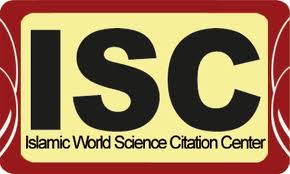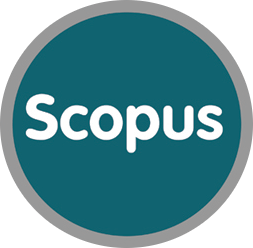Editorial
DOI:
https://doi.org/10.31436/iiumej.v26i1.3564Keywords:
EditorialAbstract
The IIUM Engineering Journal, Vol. 25 No. 1, showcases a diverse array of pioneering research that pushes the boundaries of engineering and technology. This issue reflects a commitment to addressing critical challenges, exploring innovative solutions, and advancing sustainable practices across various disciplines. From air pollution modeling and flood mapping to groundbreaking healthcare and renewable energy applications, this edition captures the essence of interdisciplinary collaboration and ingenuity.
Environmental sustainability is a recurring theme in this issue. Researchers have tackled pressing global issues such as air pollution, water purification, and waste management with novel solutions. Developing deep, sparse autoencoder models for predicting the Air Pollution Index in Malaysia exemplifies how artificial intelligence can guide impactful environmental decisions. Similarly, advancements in green cementless mortar and geopolymer technology utilizing waste paper sludge ash highlight engineering's role in reducing carbon footprints and repurposing industrial by-products.
Solar-driven innovations also take center stage, with the introduction of PVA-Chitosan/PANi hydrogels demonstrating a leap forward in solar vapor generation efficiency. This research addresses freshwater scarcity and opens new avenues for sustainable material development.
Healthcare and safety remain pivotal in this issue, with studies delving into early autism screening using federated learning and diabetic retinopathy detection leveraging deep convolutional neural networks. These works underscore the transformative potential of artificial intelligence in improving diagnostic accuracy and protecting sensitive medical data.
Another noteworthy contribution is a study on lightning protection systems for large-scale solar photovoltaic plants in Malaysia. This study provides critical insights into safeguarding renewable energy infrastructures in lightning-prone regions. Such research bridges the gap between technological advancement and safety, ensuring resilience in natural adversities.
This issue also highlights the integration of AI and machine learning in optimizing engineering systems. From a fuzzy logic-based indoor navigation system to an energy management system for standalone microgrids, these innovations demonstrate AI's capability to enhance decision-making, reduce costs, and improve system reliability. For instance, using a Model Predictive Control-based EMS for microgrids presents a tangible solution to balancing renewable energy intermittency and load demands.
Interdisciplinary efforts shine through research on 4D radar imaging and its fusion with deep learning for road-crossing classification, emphasizing the role of technology in creating safer urban environments. Similarly, the application of fuzzy logic for vehicle speed control and the development of SolatExo—a passive exoskeleton for individuals with physical disabilities—illustrate how engineering transcends traditional boundaries to address societal needs.
This volume stands as a testament to the vital role of engineering research in shaping a sustainable, inclusive, and technologically advanced future. The diversity of topics and the depth of innovation presented in this issue underline the IIUM Engineering Journal's dedication to advancing knowledge and fostering impactful solutions to global challenges.
We extend our gratitude to the authors, reviewers, and editorial board for their unwavering commitment to excellence. Your contributions ensure that this journal continues to thrive as a beacon of scholarly inquiry and practical impact. Let us embrace these breakthroughs as stepping stones to a brighter, more sustainable future.
Prof. Dr. Teddy Surya Gunawan
Executive Editor
IIUM Engineering Journal

ISSN: 1511-788X E-ISSN: 2289-7860
Published by:
IIUM Press,
International Islamic University Malaysia
Jalan Gombak, 53100 Kuala Lumpur, Malaysia
Phone (+603) 6421-5014, Fax: (+603) 6421-6298
Downloads
Metrics
References
Downloads
Published
How to Cite
Issue
Section
License
Copyright (c) 2025 IIUM Press

This work is licensed under a Creative Commons Attribution-NonCommercial 4.0 International License.






















